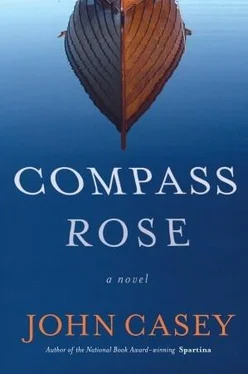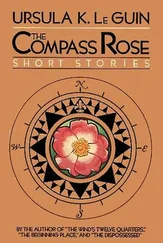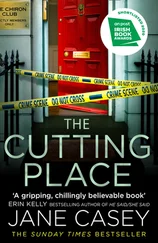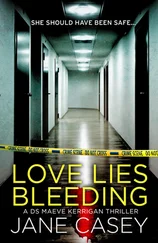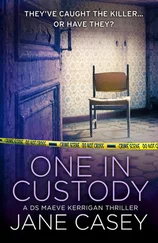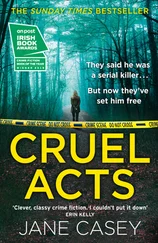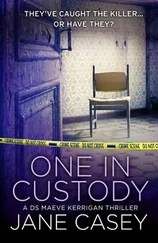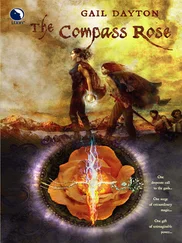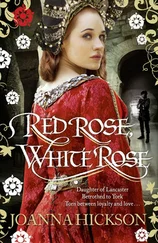The snake was successfully doing two things at once — finding a meal that it would take days to digest and a place safe from hawks, owls, or feral cats. Did it feel clever? Or was it no more reflective than a clam worm that gnawed its way down a quahog’s siphon, ate the meat, and then curled up inside the shell to take an armor-plated nap? Predation and refuge in one move. She remembered going through a bucket of quahogs she’d forked up (okay, she was a predator, too) and finding a loose-shelled one. She’d opened it up with her thumbnail and seen the perfectly coiled clam worm. She’d had an instant of revulsion and then a longer moment in which she recognized the elegance — the elegance of what she saw and the elegance of the clam worm’s endgame.
She was pleased to have put the snake and the clam worm together in a single sentence in the language of mute creatures. She had a tick of longing to know the whole language, but she was happy to see what she saw, and if what she saw linked to something else she’d seen, she was a little bit happier. A vanity but an okay vanity that in this part of her life she was modest and severe.
The male bluebird showed up. The two bluebirds perched on a branch. After a while they flew off together. Had the female somehow told him? Given a warning? Given a twitch of courtship that reset the nest-building and mating cycle?
Although it was not official Natural Resources policy, a number of officers took to breaking the eggs of mute swans. The mute swans, unlike the whistling swans, were introduced and had thrived, taking over feeding and nesting territory from the native swans and from Canada geese. Smashing the eggs didn’t work. The mute swans laid another clutch. The officers then sprayed the mute-swan eggs with silicone. The mute-swan mother kept sitting on them — in vain, since no oxygen got to the embryos. If the blacksnake had eaten eggs, would it be as easy for the bluebirds to produce another clutch as for the mute swans? All that swooping, all that mother frenzy, erased? But if there were nestlings?
The bluebirds were gone. A minute or two of fluffing and bobbing and off they went.
Elsie let that part go. She jogged back to her house, found a hammer and a flashlight. She filled both pockets with ten penny nails. Back to the locust. She gathered some thick sticks, nailed one onto the tree, stood on it, and nailed another. She climbed up and down until she had the last rung nailed just below the hole. She banged a single nail in, above and to one side of the hole. She dropped the hammer, held on to the nail with her left hand, and worked the flashlight out of her back pocket.
She held still for a moment before she moved her face in front of the hole. All that banging and clambering might have pissed the snake off. She turned the flashlight on, used its flat face to block most of the hole. She peered in. Hard to see at first — the snake’s coils were piled on top of one another, its head turned toward the back of the hole. It didn’t move at first, then raised its head. She saw two tiny claws sticking out of its mouth. The snake rippled, and the claws moved an inch farther into the gape.
She saw a bulge in the snake — was it two or three baby birds? At the back of the hole was another motion. One featherless nestling still alive.
The snake swung its head, and Elsie dropped the flashlight. It clattered down, hitting the rungs of her makeshift ladder. She lost her grip on the nail but grabbed the topmost stick. It tilted and she slid, hugging the tree with her arms, hitting one rung after another with her feet. She bumped her way down, burning her hands on the bark. She scratched her cheek on something. Her feet hit the ground, and she tipped over backward, a jounce on her ass and a slow roll onto her back. She lay still for a bit, knocked silly. When she stood up a nail slid down her leg. She reached into her pocket and sent another nail through the hole in it.
She closed her eyes. She made a high humming noise that popped her eyes back open. Silly-ass woman. She picked up the two pieces of her flashlight. She screwed the head back on. Didn’t work. Must have busted the bulb. She swished through the grass with her feet until she uncovered the hammer. She stuck it in her belt, shoved the flashlight in her good pocket. She felt her cheek. A fair amount of blood on her fingertips. Some had dripped onto her shirt. She pulled her shirttails loose to wipe her cheek. All the buttons but one were torn off. One knee was scraped and was beginning to stiffen. It loosened up as she started home. She turned around at the edge of the meadow. She spied the hole by following the nailed-on sticks, the top two of them dangling askew. A lot of clumsy fussing to see what she could see. She wondered how the snake would get down. Its stomach was ruffled like the fish-scale bottom of her cross-country skis — slid forward smoothly, gave a little traction to keep from sliding back. Maybe the snake would come down in loops, curving and recurving so that parts of its length pointed up to get a grip. That would be something else to see, but there was no telling when it would come down. A vulnerable time, that zigzag descent — a hawk by day, an owl by night.
She felt a pang at what she wouldn’t see. But what she had seen — the slow swallowing of flesh and bones, the peristalsis she’d only read about and imagined in pale abstraction — now it was hers.
She tucked her shirt back in and went into the woods. Long shadows for the first bit, then diffuse light, dim but not dark.
She’d seen what others would call horrible or even frightening, and yes, she’d felt horror and she’d had a moment of fright, but these were pushed aside by the sight, the intense sight, that made the alien intimate.
By the time she got to her house it was almost dark. When she opened the door Rose called from her room, “Mom! Where have you been? ” Rose came through the door saying, “May’s been trying to find you. Everyone’s …” She stopped and said, “What happened? Oh my God, are you all right? What did you do?”
“I’m fine.”
“You’re all bloody; there’s blood all over—”
“I scratched my cheek. It looks worse than it is.” Elsie went to the bathroom mirror. She cleaned her cheek. It was a little worse than she’d thought — an L-shaped cut, a dangling triangle of skin the size of her thumbnail. She washed it and taped a gauze pad over it. She took off her shirt and cleaned her face and chest with a washcloth. Wiped off her knee. Rose was standing behind her. Rose said, “How did you do all that?”
“I was climbing down from a tree and I slipped. Nothing much.”
“Climbing a tree? What for? Never mind — Mary and Dick and May and some other people are at May’s house. I said you’d be back by suppertime. That’s what you said. Can you go now? It’s like a meeting, and I said we’d come. And can you do me a favor? Don’t tell them you’ve been wandering around climbing trees. Just put on some clothes and make something up. And put on long pants; your knee is gross. They’ve all been busy about May’s house. They’re waiting to hear what you’ve been doing.”
Phoebe had arranged it all, but now she was looking as if May was supposed to say something. They were all sitting at the kitchen table — her family, Mary Scanlon, and Eddie and Phoebe. And Mr. Salviatti. Phoebe had come early, and then Mr. Salviatti, who arrived in a big black car with a chauffeur. She’d only seen such a thing in movies. The driver just sat in the car. May had said to Mr. Salviatti, “There’s plenty to eat and drink if your driver would like to come in.”
He said, “Ah, how kind you are, but he likes to smoke and listen to the radio.” Phoebe had laughed in a nervous way, and May worried she’d said something out of place. Mr. Salviatti had asked to see her garden. She thought he might be doing it to get her over her mistake, but he’d asked a lot of questions and even picked up a handful of soil and smelled it.
Читать дальше
